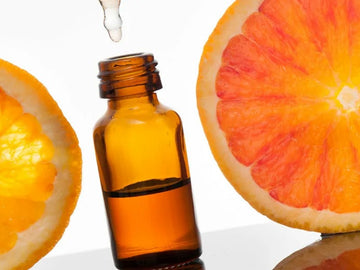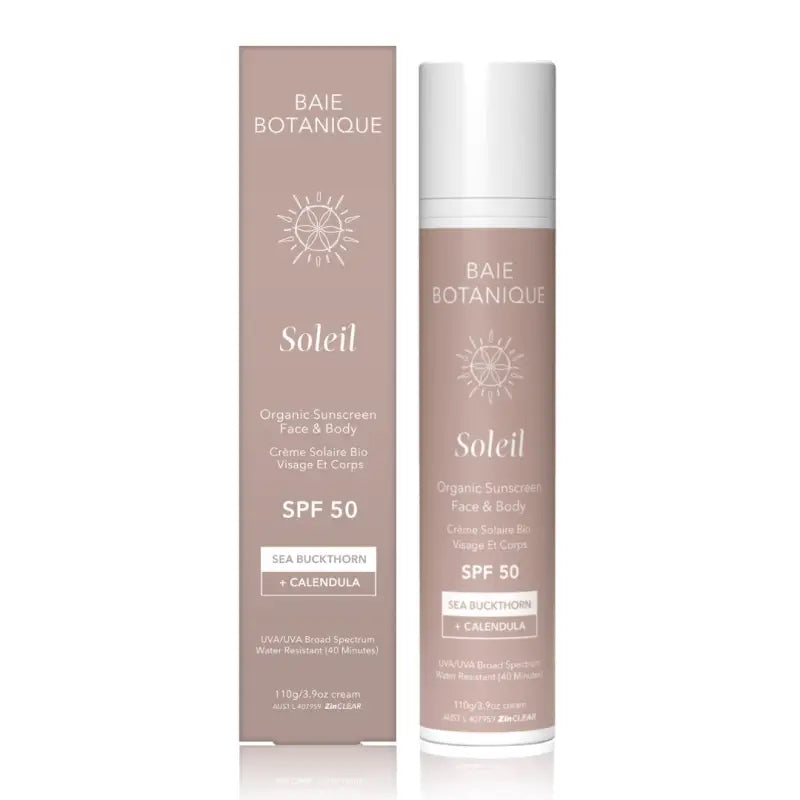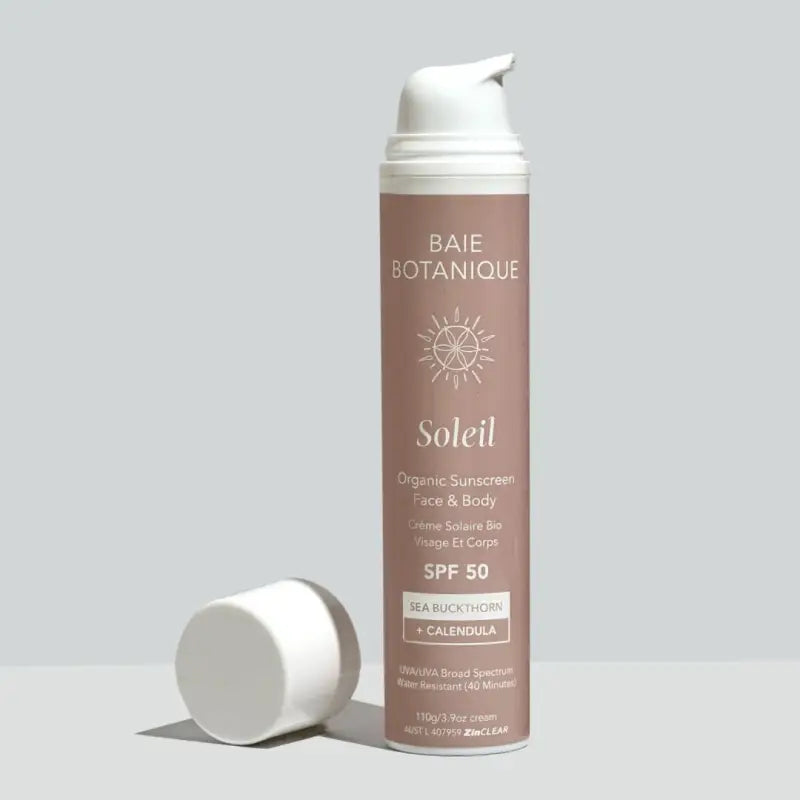Oily and acne-prone skin can be a frustrating and persistent problem for many people. The excess sebum production and clogged pores can lead to breakouts, blackheads, and a shiny appearance. This can be particularly challenging for those with sensitive skin, as many traditional acne treatments can be harsh and drying. In search for a solution, many people turn to natural skincare ingredients, such as oils. While some oils can exacerbate oily skin, others, like squalane oil, can actually help to balance sebum production and improve the overall appearance of the skin.
Squalane oil is a clear, odorless, and non-greasy oil that is derived from the oil of the squalene fish or from plants such as olives. It is a natural component of human sebum and is known for its ability to hydrate and moisturize the skin without clogging pores. It also helps to reduce inflammation, improve skin elasticity, and even out skin tone.
The use of squalane oil in skincare dates back to ancient times, when it was used by the Japanese and Mediterranean cultures for its medicinal properties. However, it was only in the 20th century that squalane oil was first synthesized and used in skincare products on a larger scale
This article will explore the benefits of squalane oil for oily and acne-prone skin, how to incorporate it into your skincare routine, and its history and uses in skincare. It will also explore the different types of squalane oil available in the market and how to choose the right one for your skin type. By the end of this article, you'll have a better understanding of how this oil can help improve the health and appearance of your skin.
Exploring the Properties and Origins of Squalane Oil
This oil is a hydrocarbon that is derived from squalene, a natural component of human sebum. It is a clear, odorless, and non-greasy oil that is easily absorbed by the skin. Unlike other oils, it does not clog pores and does not leave a greasy residue on the skin. This makes it an ideal option for those with oily and acne-prone skin.
Its natural source comes from the liver of the shark or from plant sources such as olives, rice bran, and wheat germ. The extraction and purification process vary depending on the source, but generally, it involves the separation of squalene from other lipids and then hydrogenation to form squalane.
Squalane oil mimics the skin’s natural oil, and it helps to balance sebum production, hydrate, and moisturize the skin. It also has anti-inflammatory properties that help to reduce redness and calm irritated skin.
The different types of squalane oil available in the market are shark-based, plant-based, and synthetic.
Shark-based squalane is the most traditional and natural form, but plant-based and synthetic ones are also available. Nowadays, many companies are shifting towards plant-based and synthetic products due to ethical concerns about shark hunting.
The Advantages of Using Squalane Oil in Your Skincare Routine
Squalane oil is a highly beneficial ingredient in any skincare routine. It is a lightweight, non-greasy oil that deeply hydrates the skin, leaving it soft, supple, and nourished. The oil's unique composition provides anti-inflammatory properties that help to reduce redness and inflammation on the skin, providing a soothing effect. Squalane oil can also be used to improve the skin's elasticity and firmness, resulting in a more youthful and radiant complexion. Additionally, it contains antimicrobial properties that effectively combat acne-causing bacteria, making it a valuable addition to any acne-prone skin routine. Furthermore, regular use of Squalane oil can help to lighten dark spots and hyperpigmentation, resulting in an even and balanced skin tone and it has anti-aging properties that can help to reduce the appearance of fine lines and wrinkles.
Here are main benefits of squalane:
Moisturization and hydration: Squalane oil is a highly effective moisturizer that deeply hydrates the skin, leaving it soft, supple and nourished.
Anti-inflammatory and soothing properties: The oil is known for its anti-inflammatory properties that help to reduce redness and inflammation on the skin, providing a soothing effect.
Improving skin elasticity and firmness: Regular use of Squalane oil can help to improve the skin's elasticity and firmness, resulting in a more youthful and radiant complexion.
Fighting acne: Squalane oil contains antimicrobial properties that effectively combat acne-causing bacteria, making it a valuable addition to any acne-prone skin routine.
Lightening dark spots and hyperpigmentation: The oil is known to lighten dark spots and hyperpigmentation, resulting in an even and balanced skin tone.
Anti-aging benefits: Squalane oil has been proven to have anti-aging benefits, helping to reduce the appearance of fine lines and wrinkles.
Strengthening the skin barrier: The oil helps to strengthen the skin's barrier function, protecting it from environmental stressors and keeping it hydrated.
Minimizing transepidermal water loss: Squalane oil is effective in reducing transepidermal water loss, preventing dryness and keeping the skin hydrated.
How to Incorporate Squalane Oil into Your Skincare Routine
Incorporating Squalane oil into your skincare routine can bring a variety of benefits to your skin.
Squalane is a highly beneficial ingredient for all skin types as it mimics the natural oils produced by the skin, making it easily absorbed by the skin cells. The oil's unique composition provides essential moisture to the skin, leaving it hydrated and nourished, preventing chapped lips and dryness.
Squalane is a natural antioxidant that can help to soothe inflamed skin conditions, reduce redness and inflammation, and improve the overall health of the skin. Its anti-inflammatory properties make it a great addition to any skincare routine, especially for those with sensitive skin. Squalane benefits also include its ability to improve skin elasticity and firmness, reduce the appearance of fine lines and wrinkles, and combat acne-causing bacteria. Regular use of Squalane oil can result in a more youthful, radiant, and healthy-looking skin.
When choosing a Squalane oil product, it is important to select a high-quality, pure and organic oil, derived from plant sources like olive oil or sugarcane.
The oil can be applied directly to the skin after cleansing and before moisturizing, a few drops can be applied to the face, neck and décolletage, and gently massaged into the skin.
Squalane oil can be used alone or combined with other skincare products such as serums, moisturizers, and sunscreen. It can also be mixed with other carrier oils to gain added benefits.
If you have sensitive skin, it is recommended to start with a small amount of oil and gradually increase the amount as your skin becomes accustomed to it.
Squalane oil can also be used as a carrier oil, mixed with essential oils and applied to the skin for added benefits.
It can also be used as a makeup remover, simply apply a few drops to a cotton pad and gently wipe away makeup leaving the skin feeling clean and moisturized.
Incorporating it into your daily routine can bring multiple benefits such as hydration, improving skin elasticity, fighting acne, lightening dark spots, and reducing the appearance of fine lines and wrinkles, it is recommended to use it daily for best results and to see the long-term benefits.
In conclusion, Squalane oil is a versatile and highly beneficial oil that can be incorporated into your skincare routine to improve the overall health and appearance of your skin. It is an excellent moisturizer that hydrates the skin, has anti-inflammatory properties, improves skin elasticity and firmness, fights acne, lightens dark spots and hyperpigmentation, and has anti-aging benefits. It can be used alone or combined with other skincare products for added benefits, and can also be used as a carrier oil and makeup remover. With its numerous benefits and ease of use, Squalane oil is a valuable addition to any skincare routine, and regular use can result in a more youthful, radiant and healthy-looking skin.
FAQ
Can Squalane oil be used to combat acne-causing bacteria on acne prone skin?
Yes, Squalane oil has antimicrobial properties that can help to combat acne-causing bacteria on acne-prone skin. The oil's unique composition can help to reduce the growth of bacteria on the skin, preventing the formation of new acne and helping to clear existing blemishes. While Squalane oil alone may not be enough to completely clear acne, it can be an effective addition to a skincare routine that includes other acne-fighting products such as benzoyl peroxide, salicylic acid or retinoids. It is also important to note that not all causes of acne are related to bacteria, so it is essential to consult with a skincare professional or a dermatologist to figure out the underlying causes of your acne and create a personalized skincare routine.
Is it safe to use Squalane oil on dry skin and oily skin?
Squalane oil is generally safe to use on both dry and oily skin. The oil is a lightweight, non-greasy, and non-comedogenic (meaning it doesn't clog pores) so it can be beneficial for both skin types.
For dry skin, Squalane oil can provide much-needed hydration and nourishment, helping to improve the skin's barrier function and prevent transepidermal water loss. It can also help to reduce dryness and flaking, leaving the skin feeling soft and smooth.
For oily skin, Squalane oil can help to regulate sebum production, preventing the skin from becoming too oily. It can also help to reduce the appearance of pores and improve the overall texture of the skin. It is also important to note that oily skin can be dehydrated, Squalane oil can help to hydrate and moisturize the skin without adding excess oil, which can lead to breakouts.
It is recommended to start with a small amount of oil and gradually increase the amount as your skin becomes accustomed to it, also patch test it before using it on the whole face.
How does Squalane oil compare to other oils in terms of moisturization and hydration?
Squalane oil is a unique oil that is similar to the natural oils produced by the skin, which makes it an excellent choice for moisturization and hydration. Squalane oil is a lightweight oil that absorbs quickly into the skin, providing deep hydration without leaving a greasy residue.
Compared to other oils such as coconut oil, olive oil, or argan oil, Squalane oil is less heavy and greasy, and it is more easily absorbed by the skin. it is also non-comedogenic, meaning it won't clog pores, which makes it less likely to cause breakouts.
Squalane oil is also more stable than other oils and has a longer shelf life. It is also non-irritating, making it suitable for sensitive skin, it does not clog pores which can lead to breakouts, and it is also odorless, which can be a plus for people who are sensitive to strong fragrances.
Can Squalane oil help to reduce redness and inflammation in the skin?
Yes, Squalane oil has anti-inflammatory properties that can help to reduce redness and inflammation in the skin. The oil is rich in antioxidants and fatty acids, which can help to soothe irritated skin and calm inflammation.
Squalane oil can also help to improve the skin's barrier function, which can reduce the risk of inflammation caused by environmental stressors such as UV radiation, pollution or wind. Additionally, it can help to hydrate and moisturize the skin, which can further reduce redness and inflammation.
It is important to note that while Squalane oil can be beneficial for reducing redness and inflammation, it may not be the only solution for these skin issues. It is recommended to consult with a skincare professional or a dermatologist to create a personalized skincare routine that addresses your specific skin concerns.
It is also important to note that some people may be allergic or sensitive to Squalane oil and as a result, it may cause redness and inflammation. It is recommended to do a patch test before using it on the whole face.



















